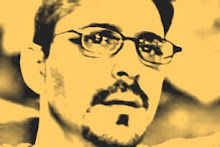All's here for feeling
Voice: Where does instinct or intuition fit in there?
Olson: I'm trying to avoid those words. By the way, i would knock'em right down by using Jung's four functions. i think that nobody has improved on Jung's declaration of functions. These are the functions. The four functions are intuition, sensation, thinking and feeling--which I notice that Jung in that article slips and makes "emotion" instead of feeling, which is a terrible error. "All is there for feeling," for example, to take Whitehead's--that enormous statement of Whitehead's about the character of creation. "All is there for feeling." That's not emotion, emotions are strictly a personal business and hung-up stuff, which disappear the moment that you touch the real....
(from "Under the Mushroom," 1963)
This is certainly an interesting distinction that Olson makes between "emotion" and "feeling," although the speculative character of "there" in Whitehead's proposition, as Olson recounts it, goes uninvestigated, which is a concern if we're questioning the problematic of the real vis-a-vis emotion.
It seems to me that feeling, taken in its fullest sense, is implicated in the evental context of now, to which, as Duncan claims, the poet is responsible in terms of one's attentions. In other words, the now's here, not there, the moment through which the past and the future rush into and pass through one another, at least to use Olson's own understanding of history as a presence through which one functionally exists. Presence, in this use, is functionary and doesn't pander to a predicated "metaphysics" in some philosophico-mystical way. I suppose I can put it another way: Here = feeling = being = event = now, etc. Equal, that is, to the real itself.
Adieu.

